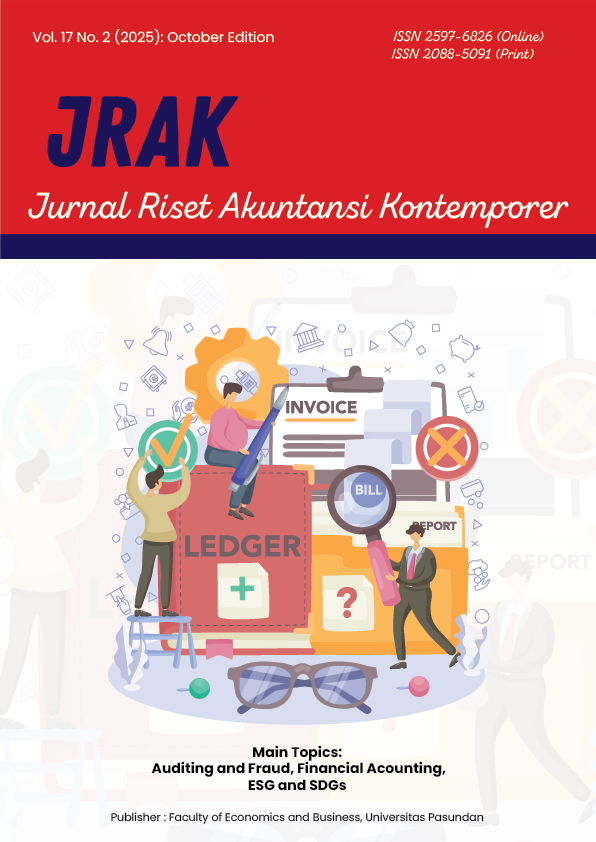HOW DO FINANCIAL LITERACY, RELIGIOSITY, AND MORAL SENSITIVITY INFLUENCE THE PREVENTION OF ONLINE LOAN USAGE?
DOI:
https://doi.org/10.23969/jrak.v17i2.24190Keywords:
crime triangles, financial literacy, online loans, religiosity, routine activity theoryAbstract
The rise of online loans has been a major concern in Indonesia’s financial technology sector, especially due to their growing influence on university students. This study investigated how financial literacy, religiosity, and moral sensitivity shaped students’ ability to resist using online loans, a vulnerable demographic increasingly targeted by digital lenders. A quantitative approach was adopted, applying the Crime Triangle from Routine Activity Theory and the GONE Theory as its theoretical framework. Data were collected from 186 respondents through purposive sampling. The results showed that all three factors significantly and positively influenced students’ resistance to borrowing online. This study was distinctive in combining psychological and moral aspects into a predictive model that had not yet been tested in the Indonesian context. The findings contribute to behavioral finance literature and provide practical guidance for policymakers, educators, and fintech regulators in minimizing students’ exposure to online lending traps.
Downloads
Downloads
Published
Issue
Section
License
Copyright (c) 2025 Author

This work is licensed under a Creative Commons Attribution-NonCommercial-ShareAlike 4.0 International License.

















